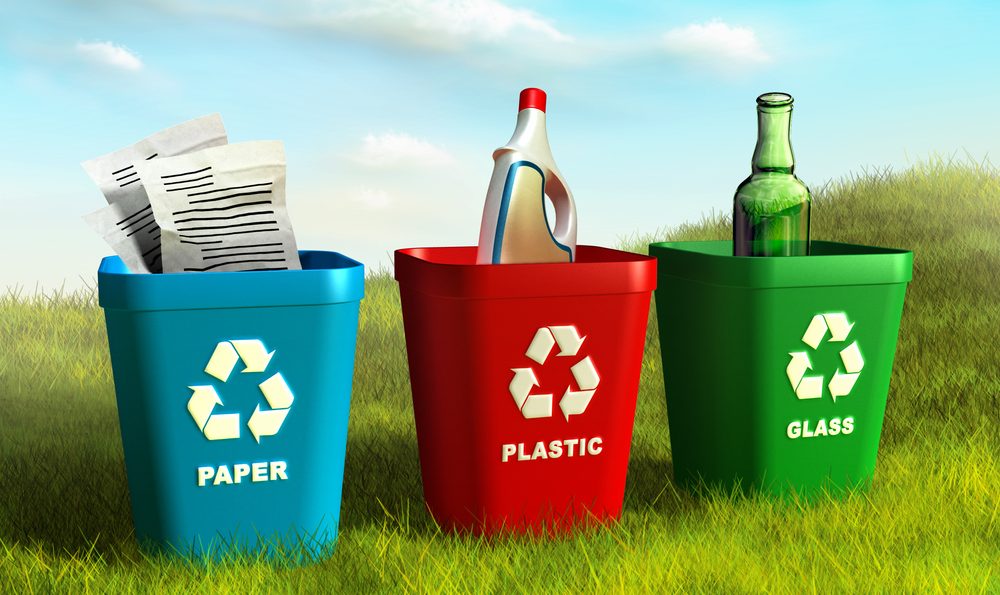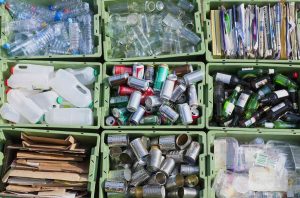
In an age of environmental urgency, adopting sustainable practices, like recycling, is an important step towards a more eco-conscious future. However, beyond the comfort of our blue bins, many remain mindless in their recycling methods, dismissing plastic the moment they hit the bottom of the recycling bins. The processes following become an afterthought, overlooked in convenience and the rush of our daily lives. At Elmwood Park High School, the lack of recycling reflects a broader issue that extends beyond our community, demonstrating a need for worldwide action and progress.
These implementation issues, and other common challenges, all highlight the importance of recycling and the effort needed to maintain a more sustainable future. While global movements, like the #SaveTheTurtles and Greta Thunberg’s UN, address have played crucial roles in environmental advocacy, it’s not enough.
The Difficulties of Recycling
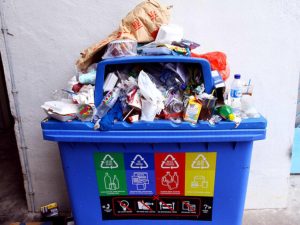
Recycling faces many challenges, mostly rooted in convenience, lack of education, and economic complications. When recycling services are inaccessible or the process is too complex, most prioritize convenience over sustainability, decreasing the overall participation. Additionally, misconceptions, born from lack of education, surrounding recyclable materials lead to contamination, preventing effective recycling and hindering the general public’s willingness to do so. Finally, and maybe the most difficult challenge to overcome, is the financial aspect of recycling. Hiring companies to collect recycling and take them to centers is increasingly expensive and is a financial burden most are not willing to take. However, even considering all of these challenges, the state of our environment should come before convenience. Climate change is one of the few problems humans have created and can still change. Respecting the planet we inhabit and doing our best to maintain its wellness should be a priority for all.
Implementation at EPHS
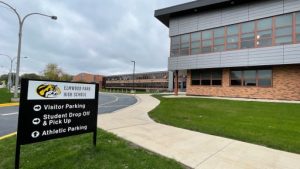
Elmwood Park High School serves as a relevant example of these challenges in implementing effective recycling policies. Multiple eye-witness reports have claimed to see EPHS custodians “dump both the blue and the black garbage bins into the same garbage bin” after school. When asking around, both students and teachers echoed that our lack of recycling was seemingly public knowledge. It’s a disheartening revelation given the presence of the two separate bins in each classroom. Is it a discrepancy between the intended recycling efforts and the actual implementation within our school environment? Or are the true policies purposely withheld from the community?
Some students are under the impression that the problem lies within administration and the policies they put in place, while most assume it’s a budgeting issue. Two EPHS teachers were interviewed, and both believe that if our school did recycle, and were educated on how to, “people would correctly use the bins”. As teachers, they would be more inclined to implement recycling in their classrooms, if that was something our school did. One teacher recalled discovering our school didn’t recycle, remembering feeling “disheartened” and “upset”, especially after their previous efforts to consistently separate waste in their classroom. Additionally, both teachers interviewed think the problem most likely surrounds complications in funding. While both are adamant that our school needs to recycle, they understand “It’s too expensive to recycle”. However, going forward, if EPHS continues their current recycling policies, they think we should “at least take the bins away and stop lying that we do recycle.” These issues within EPHS, lack of clear communication regarding recycling policies, financial obstacles, and individual misconceptions, are evident outside our community. They’re challenges faced globally that need our collective attention and effort. “Every little bit helps”, and it’s important to take initiative and work on making a difference, starting in our school and community.
Past Recycling Movements

Flashback to 2017, where sales of metal straws spiked and other eco-friendly items, like hydroflasks, were almost everywhere. It was this year when a gut-wrenching video of a straw being pulled from a turtle’s nose went viral, becoming the catalyst for the #SaveTheTurtles movement. It was the era of VSCO girls, turning environmental consciousness into a trend and converting sustainability mainstream. Greta Thunberg’s powerful address to world leaders in 2019 further motivated a global movement for environmental awareness. While there are scientific advancements in environmental studies, and even social environmental progress, sustainability should surpass fleeting trends. Saving our planet demands our consistent commitment.
Above is a clip from Greta Thunberg’s 2019 speech to world leaders at the UN Climate Action Summit. The then-16-years old’s powerful speech gained massive audience applause.
Benefits of Recycling
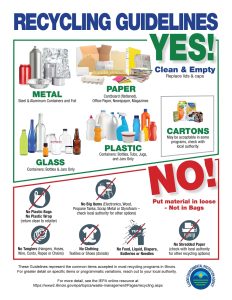
The benefits of recycling are endless. It prevents pollution, reduces greenhouse gasses, creates jobs, saves energy, and decreases the amount of waste sent to landfills. If conscious of the proper guidelines, recycling doesn’t have to be complicated. According to the Illinois Department of Central Management Services, Illinois has two important recycling programs: the I-Cycle program and the E-Cycle program. I-Cycle consists of recycling paper, cardboard, aluminum cans, scrap metal, fluorescent light bulbs, batteries, and silver bearing materials. E-Cycle provides recycling of electronic equipment (PCs, copiers, and printers). While recycling differs from town to town, even company to company, it’s not impossible to educate yourself. The fundamental guidelines are still the same.
Recycling is only one aspect of helping our planet. Regardless of commitment to recycling, it’s important to acknowledge the impact of a single person. If each individual does their part, and actively works through the challenges to focus on the benefits, change can happen. “Even one person doing something makes a difference”, and maybe, this difference can start in our school.
Works Cited:
- Anonymous, Interview by Yeimi Alday, 31 October 2023.
- Anonymous, Interview by Yeimi Alday, 1 November 2023.
- Garcia, Karen. “Recycling: Are We Doing It Correctly? Can We Do It Correctly?” Los Angeles Times, 15 August 2023, www.latimes.com/environment/story/2023-08-15/recycling-are-we-doing-it-correctly-can-we-do-it-correctly.
- Ghate, Amol. “Reusable Straw Market: One of the fastest growing industry.” Dataintelo, 2 March 2020, https://dataintelo.com/reusablestraw-market-one-of-the-fastest-growing/.
- Illinois Department of Central Management Services, “Recycling”, Illinois.gov, (n.d.), https://cms.illinois.gov/agency/recycling.
- PBS News Hour, “WATCH: Greta Thunburg’s full speech to world leaders at UN Climate Action Summit.” YouTube, uploaded by @PBSNewsHour, 23 September 2019, https://www.youtube.com/watch?v=KAJsdgTPJpU.
- Resource Conservation Division. “Reduce, Reuse and Recycle.” Boulder County, 22 August 2023, https://bouldercounty.gov/environment/recycle/reduce-reuse-recycle/.
- The U.S. Recycling System, “The U.S. Recycling System | US EPA.”, 25 Oct. 2023, www.epa.gov/circulareconomy/us-recyclingsystem.
- Vox, “Why you’re recycling wrong.” YouTube, uploaded by @Vox, 12 March 2019, https://www.youtube.com/watch?v=R7N5a476DKQ.


